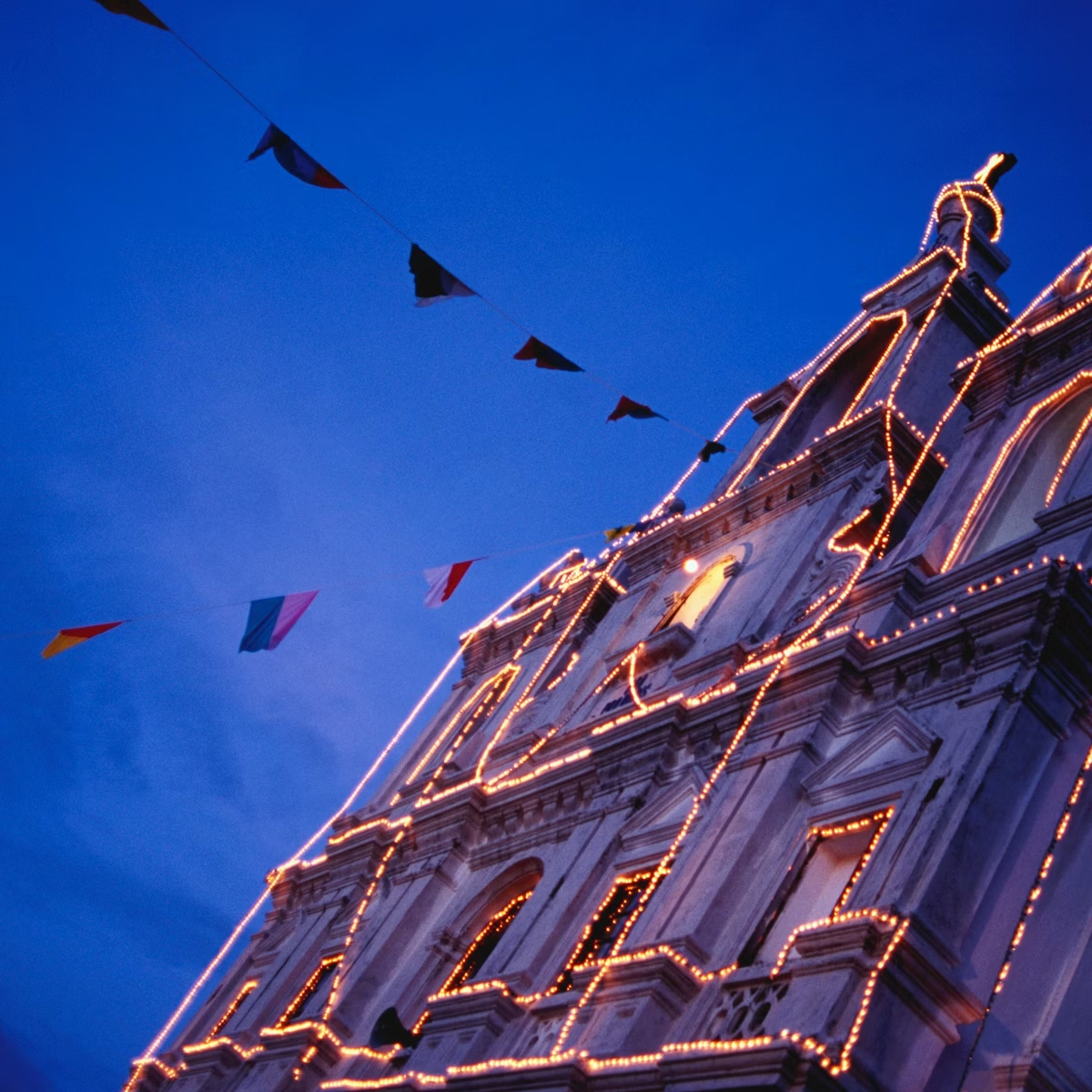The Mahalsa Temple, 1km down the road from the Shri Manguesh Temple, is in the tiny village of Mardol. This temple’s deity originally resided in an ancient shrine in the village of Verna in Salcete taluk (district). The buildings were reputedly so beautiful that even the Portuguese priest whose job it was to oversee their destruction requested that they should be preserved and converted into a church.
Permission was refused, but before the work began in 1543 the deity was smuggled to safety. Mahalsa is a uniquely Goan deity, this time an incarnation of Vishnu in female form. Various legends suggest how Mahalsa came into being. In one, Vishnu, who was in a particularly tight corner during a struggle with the forces of evil, disguised himself as Mohini, the most beautiful woman ever seen, in order to distract his enemies. The trick worked and Mohini, with her name corrupted to Mahalsa, was born. To complicate matters, Mahalsa also fits into the pantheon as an incarnation of Shiva, the destroyer. In general, however, she is regarded by her devotees as a representative of peace; for this, and for her multifaceted identity, she has many devotees.
Once you pass through the entrance gate off the busy side street, the temple is pleasantly peaceful. The inner area is impressive, with huge wooden pillars and slatted windows and, like most of the other temples in this area, an ornamented silver frame surrounds the doorway to the sanctum. Walk around to the back of the main building and peer through the archway to the water tank; the combination of the ancient stonework, palm trees and paddy fields beyond is quite a sight.
In front of the temple stands a large deepastambha (lamp tower) and a 12.5m-high brass oil lamp that is lit during festivals; it’s thought to be the largest such lamp in the world.
In addition to the annual chariot procession held in February for the Zatra festival, the temple is also famous for two other festivals. Jasmine flowers are offered in tribute to the god Mahalsa during the Zaiyanchi Puja festival, which falls in August or September. The full-moon festival of Kojagiri Purnima is also celebrated here; on this particular night (usually in September) the goddess Lakshmi (Laxmi) descends to earth to bestow wealth and prosperity on those who stay awake to observe the night-time vigil.




